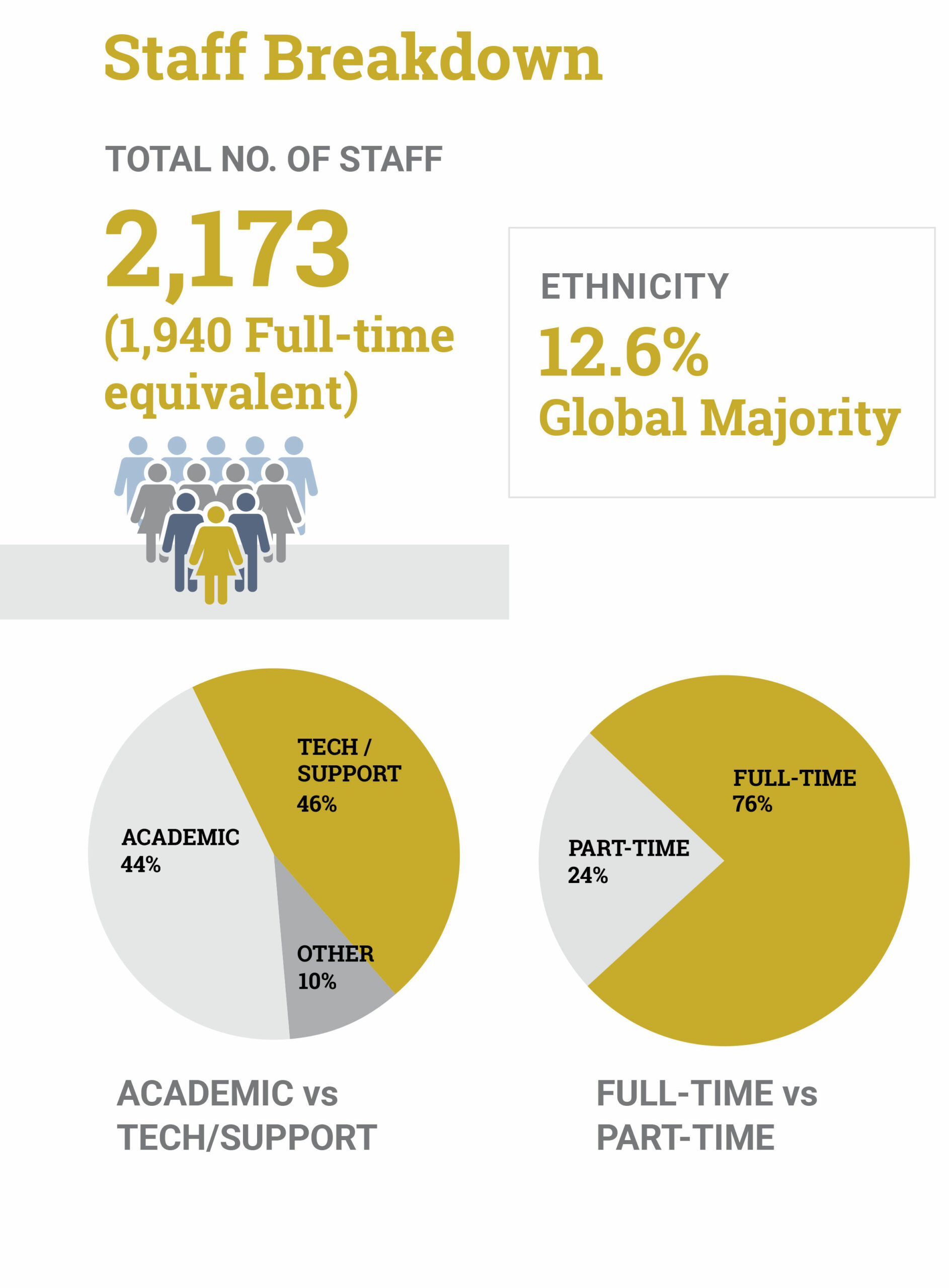About us
Based in the heart of the Midlands, we are the only Higher Education institution in the Black Country.
With campuses based in Wolverhampton, Walsall and Telford, the University of Wolverhampton has over 24,000 students taught in the UK and abroad, and 2,173 staff. We are proud to be a leading force in and around the city and towns our campuses are based in and as a key employer locally we are aware of our responsibility and impact in the region.
Useful links:
Our students
Our University prides itself on its educational roots, and opportunities for students have been at the heart of our mission for over 190 years. We are instrumental in enabling social mobility and providing skilled workforces in some of our local economy’s key sectors. Through this we enjoy fruitful partnerships across the locality and internationally.
Our central location is reflected in a student body that is almost 70% from the region (West Midlands, Shropshire and Staffordshire), and is more equally balanced than most other comparable institutions in terms of the distribution of younger and mature learners. Through the development of our campus facilities, we are starting to grow our national and international reach to support our growth agenda, whilst increasing the number of 18-year olds who join us each year. This is helping us establish clear areas of excellence and distinction within a very competitive West Midlands landscape.
Our students are at the heart of everything we do, ensuring we provide them with the right environment, support, knowledge and opportunities they need. We strive to remove all barriers to ensure our students can achieve their potential and become successful alumni, as well as future leaders and role models for the next generation of University of Wolverhampton students.
International partners
Internationally the University has long standing partnerships in Europe, as well as China, Sri Lanka and other countries, which have enabled the University to establish a strong foundation of transnational education partners that are mutually beneficial. The number of international students coming to study with us has significantly increased, especially from South Asia and Sub- Saharan Africa, areas where we are increasing and diversifying our geographical reach.
Academic portfolio
We have a large academic portfolio which has been the subject of significant review to ensure that it is fit for purpose, financially sustainable, well placed to continue to meet the needs of our employers, and addresses the ever-changing regulatory environment we operate in.
Research and applied research are key to the success of any university and in the recent Research Excellence Framework (REF2021) we improved our position on the previous exercise, with more than half of our research judged as internationally excellent or world-leading.
In the Knowledge Exchange Framework (KEF) we are within the top 10% nationally for public and community engagement, as well as in the top 10% for local growth and regeneration.
Partnerships
We have an active presence on the Local Enterprise Partnership (LEP) boards, especially the Black Country board which has been extremely supportive. The devolution of the LEP and the move of governance to the West Midlands Combined Authority will provide us with new opportunities and challenges to ensure that the Black Country voice is heard, and that we continue to attract investment into the University and area.
Throughout the region we have active collaborative partnerships with further education colleges delivering our degree courses. This is further supported through the work of the Aspire to HE partnership which the University chairs, working with further education colleges, and as the focus changes to attainment-raising, working more with secondary schools.
Our links to employers within the region are extensive and play an important role in our industrial advisory boards that help shape the curriculum to meet their needs. The work we do with healthcare education is a fantastic example of delivering courses in place to support the needs of the region to become self-sufficient and meet the demands of both our students and employers.

